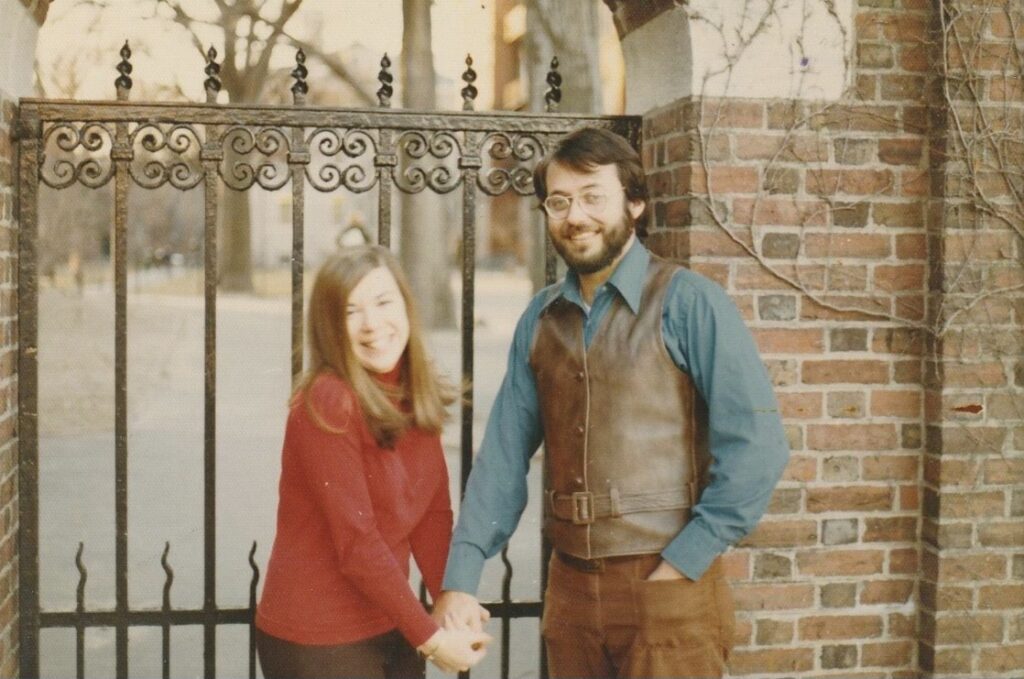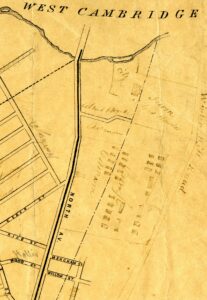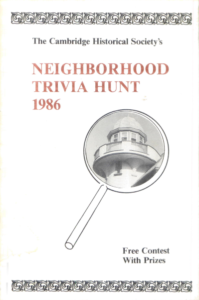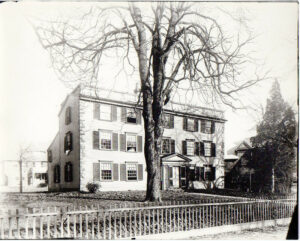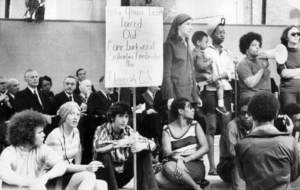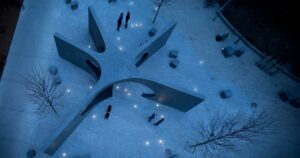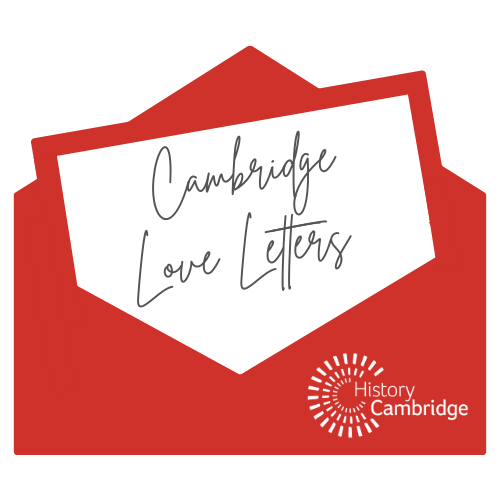
Cambridge Love Letters
In June 2021, History Cambridge held and event called “Cambridge Love Letters” at Starlight Square. We asked members of the larger Cambridge community to send us their love letters to the city. These are some of the submissions.
Dear Cambridge,
When I first arrived in your port twenty-one years ago, I had no idea how deeply I’d come to love you. I knew right away that I liked you. I liked your style, your energy, your progressive politics. But I wasn’t sure how long we’d last. A native New Yorker, I always imagined moving back there at some point. I’d come to you, Cambridge, for a one-year graduate program. Who could say what would happen after that?
I loved getting to know you that first year, Cambridge. I loved living next door to Izzy’s, the smell of rice and beans and stewed chicken filled my bedroom, and the rest of the house. We’d smile and wave over the driveway. I loved taking the 68 bus down Broadway in the early morning. Filled with high school students, it was loud and crowded and bursting with energy. I loved walking home on Harvard Street, observing the rich variety of houses and the transition of neighborhoods between Harvard and Kendall Squares. I loved taking the T into Boston from Central Square. When the train emerged from underground, I’d drink in the view of the skyline expanding over the river on both sides. In many ways, you reminded me of my hometown.
I knew I was falling for you. I couldn’t leave you yet. In our second year, our love expanded to include Thabiti, who moved here so we could see if we worked as a couple. Thabiti’s from Brooklyn, and, like me, always assumed an eventual return to the city. “We’ll be here for a year or two,” we said to each other, and all our friends and family when they asked. A year or two became two or three, then five, then seven. We got married, I finished my doctoral program, and we had a baby. When I was seven months pregnant with our second baby, eleven years ago, we moved into the house we live in now. I remember how we stood in the empty living room, looking at each other across all our boxes. “We really live here now,” I said.
We planted ourselves anew, and you offered fertile ground for our family life to take root. We were nourished by kinship and a new extended family from our childcare community. We found relief from the monotony of life with small children in your many playgrounds and recreational activities. We sent our children to your schools and afterschool programs and summer camps, where they were always surprised at how many people they already knew. You kept us safe through our storms and provided solid ground when we felt shaky.
As the years have passed, our love has matured. Your rituals and routines establish a rhythm to life, and there are events I anticipate each year, like perennials in a garden. I love the City-wide Dance Party when the streets shut down, lights project onto City Hall, and people of all generations come out to celebrate the summer. I love Danehy Park on snow days, when sleds glide down the big hill, their occupants steering to avoid landing in the swamp. I love the daily moments of beauty. That spot on the river path where I always stop to admire the composition of the sun and clouds and water. Each day it is different. My favorite is a winter sunrise, when the colors are vibrant reds and majestic pinks.
Like any long-term relationship, our love, Cambridge, has not been perfect. I’ve felt disappointed and frustrated and angry with you at times. In these moments, I’ve appreciated you calling me in to be a more active citizen. I’ve learned, I’ve learned, from you, how to advocate at School Council meetings, how to give public comment to School Committee, how to participate in a representative democracy. I’ve loved working with my colleagues in the city to build new systems to improve services for residents. It hasn’t always been easy, but it has strengthened the core of our love.
For more than two decades, you’ve been the background for my life, Cambridge. Without you, I wouldn’t have met the people who have sustained me and nurtured me through so many of life’s greatest joys and deepest sorrows. Thank you for holding me and taking such good care of me for all these years. I may not have been born here, but this is where I have grown up. Cambridge, you’re my home.
Love always,
Luba Feigenberg
My Love Gave Me a Passion-Flower
By Margaret Fuller
My love gave me a passion-flower.
I nursed it well – so brief its hour!
My eyelids ache, my throat is dry:
He told me that it would not die.
My love and I are one, and yet
Full oft my cheeks with tears are wet –
So sweet the night is and the bower!
My love gave me a passion-flower.
So sweet! Hold fast my hands. Can God
Make all this joy revert to sod,
And leave to me but this for dower –
My love gave me a passion-flower.
“My mother and Dan’s mother were best friends when Dan and I were just little children. They belonged to a bridge club called the Four M’s: Molly McConnell, who lived here behind me; my mother, Mary Fitzgerald; Margaret Kelly, Dan’s mother; and Mary Haney, from Norris Street. The four of them met every single week at a different house; it was one of their nights out. I knew Dan’s brothers and sisters, and he knew mine. He and my brother Frank were close friends. When Dan and I went into the service, he started writing to me. I was having a great time, and I didn’t want to be bothered writing and never answered his letters. When we all came home, my brother Frank started the VFW, Post 7353, down here on Mass. Avenue. He became the first commander, and I became the first president of the Ladies’ Auxiliary. I started Saturday evening dances, and I bet there were 25 couples that eventually married from those Saturday night affairs. My sister Marie met her husband, Dan Griffith, there. Dan Kelley started coming to dances, taking me home and we began going together. One evening he told me to meet him at Frank’s Steak House. He presented me with a diamond, and I almost fainted. We were married the twelfth of February, 1950.” – Abby Fitzgerald Kelley
Love letter to Cambridge Basketball
Marty Blatt
Cambridge basketball has brought me great joy over many years.
I have loved attending Cambridge boys basketball games since the days, four decades ago, when I saw Patrick Ewing play. I can recall that the visiting team would be out warming up when Ewing would emerge from the locker room to lead his team, which included many talented players, onto the basketball court. Of course the visitors already knew what a tough game they were set to face. But I felt that when they saw the team led by Ewing and his teammates take the floor, they were totally psyched out and had essentially lost the game right then and there, even before the opening tip.
The Cambridge Rindge and Latin School (CRLS) gym is a great place to watch a game; it has almost no bad seats. The cost of admission is quite moderate (and even less for me these days as a senior citizen). It is small enough to have an intimate feeling. You can hear all the fans and the instructions, sometimes delivered with great passion and intensity, from the coaches. Audiences are multigenerational and multiracial with all genders in attendance.
In recent years the team has had tremendous success which included winning back to back state championships. And the players have dedicated themselves to the memory and spirit of one of their own who tragically succumbed to cancer.
This past season, I watched every game of the abbreviated season. Sadly, all of this viewing had to be done online with the threat of Covid19 not permitting indoor audiences. I greatly look forward to returning to the bleachers at the CRLS gym for more in person basketball games. When that happens, I know that that will signal to me that Covid19 is truly in full retreat.
I suppose that there are many who look at Cambridge from the outside and are in awe of Harvard and MIT. They are of course important players in the city. But basketball has for a long time has been the most successful high school sport. Many young people in Cambridge grow up loving the game and play at Hoyt Field or the courts on Memorial Drive or in a youth center or elsewhere around the city. I’m sure that it is the dream of many young boys to don the CRLS varsity basketball uniform. So, some people can extol Harvard and MIT all they want. But for me Cambridge is much more about young people competing in the game of basketball that they love so much. Give me my seat in the bleachers rooting for the CRLS Falcons and I will be always be happy and fully engaged.
To all Cambridge libraries,
Whenever I sit on your cozy chairs or pick up a book from you. It makes my day 100 percent better. I am making this letter so that you know how much libraries mean to me. I hope you will never close them so that we can keep reading. I like reading new stuff whether it’s fiction or nonfiction. So I hope this helps and I hope you will never close the libraries.
From the one and only Allison
Cambridge, I love your purple houses.
I love the demure houses in flattering pastel. I love the bold and brash that announce their pride. I love the Victorians, with their bold painted trim. And those that opt for subtle white accents. And of course those that say, why stop with purple? I love those that taunt their neighbors, those that just toy with purple, and those who spread the joy as far as they can. I love the houses of friends and neighbors. I love the house with the matching Little Free Library. And I love the businesses that have joined the fun!
Laura B. Roberts
Cambridgeport by Alisa White
The late-afternoon light
Coats the porches with promises.
Home is just a few more footsteps.
Sidewalk, letterbox, key in lock.
This is the place I learned to love
The soft sunsets, the passage of time.
To the Dandelion
By James Russell Lowell
Dear common flower, that grow’st beside the way,
Fringing the dusty road with harmless gold,
First pledge of blithesome May,
Which children pluck, and, full of pride uphold,
High-hearted buccaneers, o’erjoyed that they
An Eldorado in the grass have found,
Which not the rich earth’s ample round
May match in wealth, thou art more dear to me
Than all the prouder summer-blooms may be.
Gold such as thine ne’er drew the Spanish prow
Through the primeval hush of Indian seas,
Nor wrinkled the lean brow
Of age, to rob the lover’s heart of ease;
‘Tis the Spring’s largess, which she scatters now
To rich and poor alike, with lavish hand,
Though most hearts never understand
To take it at God’s value, but pass by
The offered wealth with unrewarded eye.
Thou art my tropics and mine Italy;
To look at thee unlocks a warmer clime;
The eyes thou givest me
Are in the heart, and heed not space or time:
Not in mid June the golden-cuirassed bee
Feels a more summer-like warm ravishment
In the white lily’s breezy tent,
His fragrant Sybaris, than I, when first
From the dark green thy yellow circles burst.
Then think I of deep shadows on the grass,
Of meadows where in sun the cattle graze,
Where, as the breezes pass,
The gleaming rushes lean a thousand ways,
Of leaves that slumber in a cloudy mass,
Or whiten in the wind, of waters blue
That from the distance sparkle through
Some woodland gap, and of a sky above,
Where one white cloud like a stray lamb doth move.
My childhood’s earliest thoughts are linked with thee;
The sight of thee calls back the robin’s song,
Who, from the dark old tree
Beside the door, sang clearly all day long,
And I, secure in childish piety,
Listened as if I heard an angel sing
With news from heaven, which he could bring
Fresh every day to my untainted ears
When birds and flowers and I were happy peers.
How like a prodigal doth nature seem,
When thou, for all thy gold, so common art!
Thou teachest me to deem
More sacredly of every human heart,
Since each reflects in joy its scanty gleam
Of heaven, and could some wondrous secret show,
Did we but pay the love we owe,
And with a child’s undoubting wisdom look
On all these living pages of God’s book.
Dear Cambridge,
It was a snowy cold March afternoon when we met. You don’t remember of course, but I certainly do. I’m not prone to whimsy or the notion of love at first sight, but with you, I fell in love that very afternoon. It wasn’t Harvard despite its charm offensive. It wasn’t the pancakes at The Greenhouse Cafe (though they were memorably delicious), it wasn’t even Brattle Street with all of its grand homes and manicured lawns. I imagine it’s easy to be seduced by Brattle Street, but seduction is not love and those places, while beautiful, were standoffish. I couldn’t tell anything more about them beyond their cool, lovely exterior.
I understood that you were special the moment I rounded the corner onto Ash Street. The houses on this narrow street were closer to the sidewalks making it easy to catch a glimpse of what lay inside. Let me first say what I did not see—I did not see large televisions dwarfing the wall, I did not see shelves filled with sterling silver trays and matching photo frames. I was struck by this—by what I had unconsciously grown to expect if I caught a glimpse inside someone’s home. But on Ash Street, home after home, if there was a warm yellow lamp light in the window there were books. Shelves and shelves of books. Not to say there were no vases and photos—there were. But the shelves were there for one reason—to house books. You, dear Cambridge, appreciated them! Respected them! That’s when I fell in love with you.
My husband and I, newlyweds at the time, moved into 2 Shaler Lane that fall. Harvard housing. He attended law school, and I looked for a job. Over the years, as I got to know you even better, as your streets and hidden paths became my own, my love for you grew stronger. Lobster melts at Charlie’s kitchen (a weekly craving was expecting my first child), the lady at the Coop Café who always started my morning tea when she saw me coming, the cooking classes CCAE and Burdick-oh that hot chocolate! But more than anything our shared love of books caused my love for you to grow deeper.
Growing up in the rural Mid-South, the nearest bookstore was two hours away, so I relied on the book-mobile to come to the school once a month. Perhaps that’s why I still get excited to visit a new bookstore in a new town when I travel. But in you, dear Cambridge, I found even more. I found a community of book-lovers in a way more rewarding than I’d had anywhere else. Yours wasn’t the sort of community I had in graduate school where we were assigned books and assigned groups to talk with, nor was yours the sort of community that used books as an excuse to talk about anything but books. No, with you, I found a community of strong-minded, curious, well-read people. With you, I found it so easy to sit at a café and overhear people talking about a book. I found it easy to meet up with a friend to talk about a book. I even found it easy to have a robust conversation about a book, an author, or a genre with a perfect stranger. I might never learn that person’s name, but by-god, I know how he feels about Phillip Roth’s later works! A love for the imagination, for knowledge and understanding permeates in you in a way I’ve not found anywhere else I’ve ever lived.
Like a lot of young love affairs, I began taking you for granted. I left you for a job out west, for less expensive real estate, and milder winters. I told myself that you were replaceable. Where I was going had bookstores, so, surely I would find such a community. I’d just have to put forth a bit more effort, that’s all. I was wrong. There is no place like you and so I came back. And while Wordsworth and The Greenhouse are gone, your community of good people reading good books and engaging in good conversation lives on. And so do I. Here. With you.
Love,
Jamie
Dear Arams Pizza,
Every time I bite your pizza I love it. I don’t hate it. So many choices. You feed me pizza, subs, chicken tenders and more . I love your food and I just had it yesterday. It was amazing my dad knows the boss. I even met him when I was only 6. Your pizza is so good, especially the vegetable one with the chicken. I love your pizza
From, Sheldon Evens Cherisme
xoxoxoxoxoxoxoxooxoxoxoxoxoxoxoxoxoxoxoxoxoxoxooxoxocxoxxoxooxxoxoxoxoxoxoxoxooxoxoxoxo
To My Pets
[SOME of them]
Dear Cheetah.
Your fluffy tufts,
Your chubby belly,
Your tiny paws,
I love em all,
I love you.
Your sis,
Nihka Linhart
Dear Kudu.
Your bossy youl.
Your curly tail.
Your wet nose.
I love em all.
I love you.
Your sis,
Nihka Linhart
Dear Lynx.
Your overweight body.
Your see anything – eat anything diet.
Your cat nip and clorox craze.
I love em all.
I love you.
Your sis,
Nihka Linhart
A Love Letter to the Phillips Brooks House
By Farah Afify and Ria Modak
As PBHA Officers and campus organizers, the physical space of PBHA has always held a special place in our hearts. We have spent countless hours in the PBHA building, strategizing campaigns, fueling ourselves with snacks from the basement, and reveling in the good company of fellow organizers and activists from the Boston/Cambridge community…. From the Harvard Ethnic Studies Coalition to the Harvard Graduate Students Union and beyond, the PBHA building has long remained a space for radical organizing, pedagogy, and growth.
Throughout PBHA’s history, service, education, and action have been intertwined in the minds and actions of student leaders, staff, and community members alike. PBHA encourages us all to think critically about the theory of change we must use to make a difference in our community. To that end, in the 1970s, Phillips Brooks House offered three social justice-oriented courses that were open to all undergraduates: Social Sciences 171, a course that combined educational theory with actual teaching in the Cambridge school system, a Quincy House seminar on Cambridge, and a course at the Harvard Graduate School of Education on tutoring methodology that includes teaching reading in Boston prisons. In addition, the PBHA building was home to a number of committees and organizations that reflected the radical currents of the times, including the Environmental Action Committee and the Committee on Women’s Issues. In fact, the opening of Harvard’s very first Women’s Center was on the second floor of the PBHA building. PBHA’s commitment to service and education has continued into our own century.
In the 2000s, PBHA students spearheaded the Education for Social Action effort which brought in community leaders to teach about issues in Boston and Cambridge neighborhoods. For the past several years, student-leaders have taken up this call to action by putting together an annual six-week Advocacy and Organizing training, as well as many other trainings with local community organizers around key issues like CORI reform and youth jobs.
Like the HESC students who walked in and out of the PBHA building with posters and bullhorns in December 2019, Black student activists had already filled the halls of PBHA with dreams of building a department that reflected their own lived experiences decades earlier. In fact, when the Department of African and African-American Studies was first founded after an intense period of student activism, it was housed first on PBHA’s third floor. In addition to housing an office for Black faculty and administrators, the third floor of the building was used as the Afro-American Cultural Center (AACC). Indeed, while students of color most recently use the building as a sort of informal multicultural center, little did they know that it had already served to celebrate Black culture on campus decades earlier. While PBHA housed offices and spaces for Black students, it also did much more. For instance, hoping to mobilize PBHA’s resources further, Black students at PBHA founded the “PBHA-Afro” program, which was a partnership between them and the Association of African and Afro-American Students that hoped to teach and celebrate Black culture to and with Black youth in Cambridge. Another PBHA program, “Project Tanganyika,” was so successful that from its efforts emerged the first ever course for Swahili at Harvard….
In 2001, students used the space and resources of the building to plan a daring occupation of Massachusetts Hall to support campus workers’ demands for a living wage. Students and workers alike used the building to organize and support the Harvard University Dining Services (HUDS) strike of 2016, mobilizing thousands of students and community members in support of HUDS workers from the Parlor Room. Campus labor and community organizers continued to hold organizing meetings regularly before the outbreak of COVID-19 in the building.
These stories, found in the archives of The Crimson and abandoned boxes in PBHA’s basement, are just the first of many more that center PBHA as not just a physical space for activism by students of color but also as an organization that was deeply committed to justice — and continues to be. We and countless other PBHA students and community members are excited for the moment when we can return to our home once again.
Stay by Anne Dane
Bookstore, I love you.
Your best sellers, your remainders,
Your used books, your staff picks.
Sometimes I read standing inside,
Just for kicks.
Don’t leave, like Pangloss, Mandrake,
Schoenhof’s, Wordsworth,
Starr, McIntyre & Moore.
Flocks of little word-birds
Flying out your door.
“I met my husband at a tennis club tea in April. Carl was a New England runner-up in 1934, the year we got married. They were having a tea so that the Cambridge, Medford, and Boston clubs could get to know each other….Carl started walking beside me, and I said to him, ‘Where are you going?’ He said, ‘I’m going home with you.’ He followed me home. My father tried to scare him. When I introduced him, my father said, ‘How do you do, sir,’ you know, in the deepest voice he could. Carl weighed 118 pounds at the time, but he didn’t get scared. He kept coming back….Around the end of May, he bought the diamond. He paid so much a month on it until he got it paid for. He gave it to me in 1933, and we got married June 21st, 1934. We’ve been in this house 56 years, and we were married 57 years when he passed away. He was still calling me ‘Precious.’ I tell you, I miss him.” – Esther Gibson
It was in River Gods in Central Square. And it was his neck.
I fell in love with my now-husband (actually, at that point, I only fell in love with his neck) 18 years ago. I was a college junior, meekly not-ordering-a-drink to avoid a test of my fake ID that might end everyone’s fun. You have to worry about that kind of thing when you’re 20. We were celebrating a friend’s birthday — that’s how we know which night we met; whenever we forget, we just ask Chris to remind us when his birthday is.
In came this NECK. Manly. There was an empty chair next to me, so I invited the neck’s owner to sit there. We started talking. He was from Chicago; I was from New York City. We both loved CITIES! That was our first topic of conversation. And it’s still on our minds today. Now we spend much of our energy advocating to make Cambridge more City-like — more walkable, less car-dependent, more green and more diverse. We know City Councilors (you can do that in Cambridge). Sometimes we even understand proposed policy orders! That’s now. Then, we were mostly just hating on the suburbs.
We talked all night and met again the next day, and the next day after that, and most of the days after that in the last 18 years (and 3 months). Last March 4th, we celebrated 18 years together a few feet away from the old River Gods (RIP) by treating ourselves to something nearly as illicit as drinking at a bar as 20-year-old: dining at a restaurant at the dusk of COVID (it was Pammy’s). It was magic all over again — 18 years ago we found true love; this time, we’d found a babysitter.
– Eugenia Schraa
To the River Charles
by Henry Wadsworth Longfellow
River! that in silence windest
Through the meadows, bright and free,
Till at length thy rest thou findest
In the bosom of the sea!
Four long years of mingled feeling,
Half in rest, and half in strife,
I have seen thy waters stealing
Onward, like the stream of life.
Thou hast taught me, Silent River!
Many a lesson, deep and long;
Thou hast been a generous giver;
I can give thee but a song.
Oft in sadness and in illness,
I have watched thy current glide,
Till the beauty of its stillness
Overflowed me, like a tide.
And in better hours and brighter,
When I saw thy waters gleam,
I have felt my heart beat lighter,
And leap onward with thy stream.
Not for this alone I love thee,
Nor because thy waves of blue
From celestial seas above thee
Take their own celestial hue.
Where yon shadowy woodlands hide thee,
And thy waters disappear,
Friends I love have dwelt beside thee,
And have made thy margin dear.
More than this;–thy name reminds me
Of three friends, all true and tried;
And that name, like magic, binds me
Closer, closer to thy side.
Friends my soul with joy remembers!
How like quivering flames they start,
When I fan the living embers
On the hearth-stone of my heart!
‘T is for this, thou Silent River!
That my spirit leans to thee;
Thou hast been a generous giver,
Take this idle song from me.
“I never knew Kevin when I was growing up. He grew up on Mass. Avenue, and I grew up on Verdun Street. We could never cross Mass. Ave. until we were practically in high school; that’s how we were raised, so protected from the outside world. My high school friend Kathleen Lordan’s milkman was Kevin’s father. During the war, Kevin’s brother delivered the milk. Kathleen had a list of fellows in the Navy and Army that she wrote to. He asked her if she would like to write his brother in the Marines. She said yes and wrote to him. When the war was over, Kevin wanted to take her out to dinner and show his appreciation. She was about 5’2” and Kevin was 6’4”. He knew she was very short, and he said, ‘Would you want me to bring a friend along?’ She brought me, and he brought a fellow who was in the Marines. I can remember Kathleen laughing to this day. It was raining, just like it is tonight, when we went out to the movies. He was holding the umbrella, and she was soaking wet because the umbrella was so high. Afterwards, he asked me out, and he brought a friend along for Kathleen, another marine from Cambridge, Bill Jefferson. We started going together and doubledating. She married his friend, Bill, and I married Kevin.” – Julia Griffin
“I fell in love with brick in Cambridge. Brick is ubiquitous in New England, and you’d be hard pressed to find an ugly brick building in our more historic neighborhoods, but the brick in Cambridge is something else. I worked in a brick building, the first five years after I graduated from college; I found a home in a brick building on Oxford Street, surrounded by taxidermied animals and rocks under glass.
When I would go on walks during lunch breaks, or when I was in town just because, I would find myself staring at those brick buildings. And, let’s be real, I’d find myself slipping and tripping because of those bricks – the bricks on the ground. Bricks are great on buildings but I think we can all agree, bricks on the ground do not make for the best walkways. I have slipped on leaves on brick, and slipped on ice on brick, and sometimes slipped on brick because brick worn down by thousands of visitors every year eventually becomes quite slippery.
As a former volunteer at History Cambridge, I would slip on cobblestones and bricks every time I walked to and from the Hooper-Lee-Nichols House – it was inevitable. But it was fine! Because I was walking on history. I was walking in a place I loved, surrounded by buildings I could not stop staring at, in love with brick even as it tried to force me to faceplant every dang time I set foot on it.
Maybe it was the brick telling me it loved me back and just needed a kiss.”
– Alli Rico
Dear Dominoes,
Your pizza is AMAZING and I love your cinnamon sticks. I am getting hungry right now. My family orders your pizza on Saturdays.
– Logan Magalhaes
“I went into the service in ‘42; I came out in ‘45 when I was 26 years old. I went [to work] on the MTA in 1948 and was there for 34 years. I drove [streetcars] from Watertown to Central Square, down Western Ave., Pearl St., Green St., Brookline St., back onto Mass Ave., and up Western Ave. again to Watertown. We had the old double-enders, which we called Type 5’s; you could drive at either end. We couldn’t turn around in front of the Olympia Theatre, so we took the pole off the back of the car, reversed the seats, and moved the change machine to the front. I liked working evenings, 5 p.m. to 1 a.m. or 4 p.m. to midnight. Usually you got the same people, telephone operators, like a lady who took the Broadway from Kendall to Harvard. She lived on Dana St. She and her girlfriend were getting off and the girlfriend said, ‘It’s New Year’s Eve! You know, nobody wished Happy New Year.’ So I said, ‘Happy New Year!’ That’s how I got to know my wife. We’ve been married 43 years.” – Jim Mastrullo
A love letter to the Cambridge Historical Society, now History Cambridge.
When my partner and I moved to Cambridge in 2015, we didn’t know anyone at all. And as we both juggled career changes and grad school and stints in New Hampshire and New York, over four years here we didn’t make a whole lot of headway in terms of establishing friends and community. We’ve moved a lot and are used to being a team of two, and we loved our time in Cambridge, from late nights at Border Cafe to coffees at Flour to soccer games in Danehy Park. But as the writer Kurt Vonnegut says: two people is not enough people!
When I was welcomed with open arms by the folks at History Cambridge, through volunteering and joining projects, it changed my whole relationship with the city. I knew my neighbors! I had a place to be! I had work to do as part of the community. And for the first time, I met people who could share with me their Cambridge knowledge, the nuance and character you can only get from personal experience, from stories about city officials, famous families, or landmark events. For people who move frequently, are new in town, or just seeking community, there’s no better place to start than the local historical society, with its ties to the past and the present. I am so grateful to History Cambridge and especially Marieke for the warm welcome, the neighborly spirit, and the opportunity to be a small part of the community you sustain. You’re not only serving the community – you are creating it. I’m carrying on your example to the other places I go!
LOVE!! Caroline Klibanoff





























